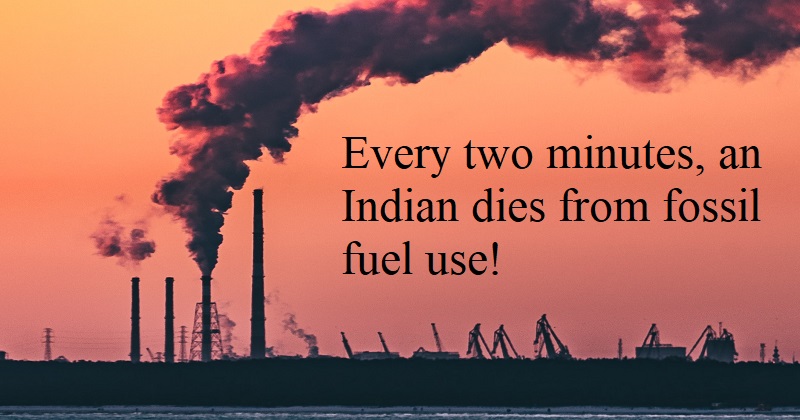
The energy crisis brought on by the Ukraine war has helped the coal, oil, and gas industry recover with increased demand and profitability. However, a recent report has advised governments to boost their health programmes and has cautioned them against their fixation with fossil fuels. According to the paper, over 330,000 deaths in India from particulate matter exposure from burning fossil fuels are estimated for 2020, or 1.2 deaths every two minutes.
Most nations have failed miserably to reduce their emissions. Fossil fuel use has surged worldwide, including in Europe, particularly since the conflict in Ukraine. Every significant organ system within the body is harmed by air pollution. Especially vulnerable are children. According to the study, the cost of the estimated 32,000 US fatalities caused by PM 2.5 pollution in 2020 is $142 billion.
The majority of large nations continue to subsidise the fossil fuel sector. 69 countries projected this to be worth $400 billion in 2019. The anticipated cost of China’s subsidies is $35 billion, $34 billion for India, and 1 billion euros each for 15 European countries. By the end of the century, the world is projected to have warmed by 2.7 degrees Celsius (above pre-industrial periods) as a result of current practises.
Heart and lung disease, infectious diseases, heat-related illnesses, particularly when exposure to hotter days increases, poor pregnancy outcomes, sleep deprivation, mental health effects, injuries, and death are some of the health effects of climate change. Other ways that climate change affects health include population displacement, societal economic hardship, and interruptions to the delivery of healthcare, education, employment, and other social services. The report, which was compiled by 99 experts from more than 50 organisations, including the World Health Organization and the World Meteorological Organization, is a call to action.
Less than a third of the $3.1 trillion earmarked for economic recovery, according to the research, is expected to reduce greenhouse gas emissions or air pollution, with the overall result likely to be an increase in emissions. When compared to the first four years of this century, heat-related mortality are expected to rise by around 55% between 2017 and 2021. Due to heat exposure in 2021, Indians wasted potential work hours and suffered income losses amounting to around 5.4% of GDP.
The window to keep global warming under 1.5 degrees Celsius is rapidly closing. Averting ‘catastrophic’ health impacts now depends on political will. Lancet Countdown report endorses calls for more green spaces in urban redesign. It’s now upto global leaders to work out how to put health at the centre of a political response.

Post Your Comments